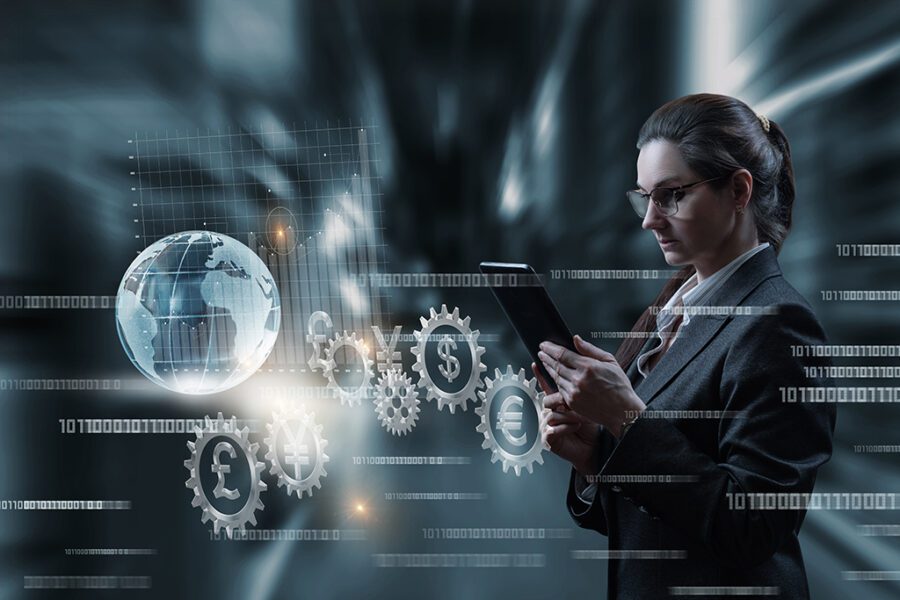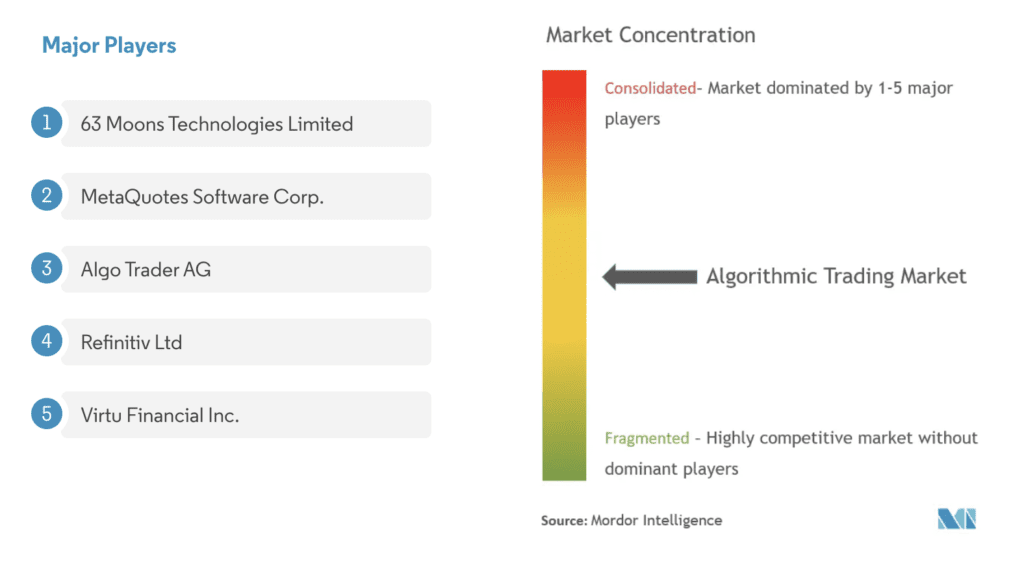
Due to the rapid pace of technological change, the way we trade the stock market is becoming more complex. One of the most significant changes that have occurred is the emergence of algorithmic trading, which has allowed traders to improve their skills and compete against other individuals. This type of trading has also raised the bar for other types of traders and is poised to outstrip traditional methods.
According to a working paper released by the UK Government’s Foresight panel, which Dame Clara Furse chairs, high-frequency trading will eventually replace human decision-making in the stock markets.
In a nutshell
Algorithmic trading is a type of financial transaction that uses computers and programs to generate and execute large orders in the market. It is commonly referred to as a fast and efficient way to trade the stock market. Unlike traditional methods, this trading strategy uses pre-defined rules to make trading decisions. A trader or investor then writes the code that executes the trade on behalf of the client.
Algorithmic trading involves setting pre-defined rules usually based on a financial instrument’s price, timing, and quantity. This type of trading eliminates the need for human error and helps markets function more efficiently.
The concept of computerized trading in financial markets first started in the 1970s. In 1976, the New York Stock Exchange introduced a system that allows customers to order securities through a designated order turnaround. In 1971, the NASDAQ became the first electronic stock market in the world.
The exchange did not utilize an auction system but instead utilized various market makers in its electronic quotation system. In 1992, the shares traded on the exchange was almost 42% of all US market volume.
The main advantage of algorithmic trading is its speed. It also provides various features such as automation, which eliminates manual intervention, and various data mining and exploration tools.
Another advantage of algorithmic trading is its risk management abilities. This type of trading allows investors and traders to test their strategies and see how they perform. There are also various options available to them, such as simulation (back-testing) in which one can perform a test without actually trading. However, one should only deploy these strategies in the real markets if they are completely sure that the strategies are working.
There are special cloud networks that are suitable best for performing back-testing. One of the leading companies in the market for algorithmic trading, MetaQuotes Software Corp., created the MQL5 Cloud Network. This platform was launched on October 14, 2011.
The network allows users to exchange computing resources and provide idle CPU time. Over its 10 years of operation, the MQL5 Cloud Network has experienced a significant increase in its capacity. It has over 34,000 test agents. Anyone can sell their computer’s capacities and earn money from the platform.

Algorithms replacing humans
The rise of computer-based algorithms has replaced single-stock analysts and investors as the main drivers of the stock market’s value.
According to a report by Opimas, financial firms are expected to reduce their human workforce by about 10% by 2025, resulting in the loss of about 230,000 jobs. Around 40% of the jobs that will be lost are expected to be in the money management industry.
BlackRock
In 2018, one of the world’s biggest investment firms, BlackRock, revealed a secret ” Monarch ” project. It involved restructuring its equities division and replacing underperforming managers sifting funds to quantitative instruments. The decision sparked a debate about the company’s strategy of replacing humans with robots.
‘…this is not about a robot taking over the world. But this is about increasing the efficiency of what we do across the board.
Rob Goldstein, BlackRock’s COO
Algorithms and machine learning are becoming more prevalent in the asset management industry as funds look to increase the efficiency of their operations by developing new technology that can help improve the effectiveness of their various departments. However, they still find it hard to implement these innovations in a way their competitors can’t easily replicate.
Point72
Steven Cohen’s Point72 Asset Management firm is reportedly using computer algorithms to try and find the exact strategies that made him a multi-billion dollar trader. According to Bloomberg, the firm is trying to replicate Cohen’s success using data collected from his most profitable trades.
One of the main steps in the process is analyzing the data collected by Point72’s traders, which include the size of their positions and the level of leverage. The firm then uses the data to develop a strategy to replicate the success. It’s also trying to identify patterns in the market, which it can then use to improve its performance.
In addition, the firm is reportedly testing an automated system that will allow its execution traders to perform their jobs more efficiently.
UBS
In 2012, David Gallers, the head of credit-default swap index trading at UBS AG, was removed from his position without any plan to replace him, according to the Economic Times. Instead, the bank replaced him with computer models that use mathematical techniques.
Credit Suisse, Goldman Sachs, and Barclays have started using computer programs to trade financial instruments, which used to generate some of the biggest fees in the industry.
Goldman Sach
In February 2017, it was reported that 600 employees at Goldman Sach’s New York office were removed from their positions. The company then replaced them with 200 computer engineers responsible for overseeing its automated trading programs.
During a panel discussion at a Harvard symposium on the impact of computers on economic activity, Marty Chavez, the Deputy Chief Financial Officer of Goldman Sachs, said that the company has already started to automate some of its currency tradings. He noted that four of the company’s traders could be replaced by a single computer engineer. About 9,000 of the company’s employees are computer engineers.
